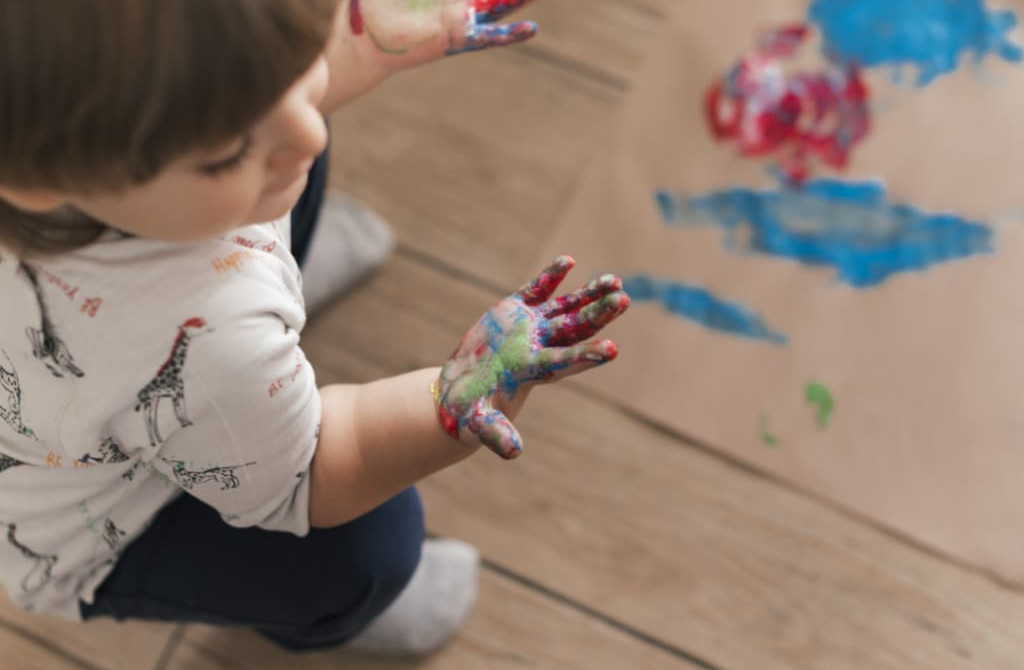We’ve all been through it as kids, aunties pinching our cheeks, relatives pulling us on to their laps to sit. With our own kids we’ve at one time or another told them to hug an uncle bye, or said ‘how cute’ when they’ve kissed or hugged another child. There’s a lack of respect for personal space, privacy and boundaries in our country, especially when it comes to children. You might wonder what all the fuss is about; after all isn’t it just showing affection.
Personal space and boundaries are important social skills that will teach your child how to behave with their peers and adults, they will learn etiquette and decorum, and most importantly it will keep your child safe! When you teach your child about boundaries, they will not only learn to respect others, but also respect themselves and their bodies.
We’ve got you covered with these helpful ways in which you can teach your child about personal space, privacy and boundaries.
Show them
- Fold a mat into a square and ask your little one to stand in the middle of it, or use a chalk to draw a large square around your child. Ask them to play or do an activity within the space and explain to them that the area they are in represents their personal space. This will help them identify their own personal space and other people’s as well.
- When you’re going to shower or to the loo, tell your child you need privacy and will be closing the door. If your child needs to change or use the potty, take them to the bathroom and tell them to keep the door closed or ajar (if your child is too young). This will teach them about the need for privacy and personal space to perform certain activities.
- Kids learn from the adults around them. They’re learning and absorbing from you even when you think they aren’t. So make sure you model good behavior when it comes to boundaries and personal space while interacting with one another.
Talk to them
- While watching a cartoon with your child or reading to them, take the opportunity to point out examples of situations where characters do and don’t respect personal space and talk about it. If your child grabs another kid’s toy or pushes, intervene immediately, ask them to think about how the other child felt. By talking and discussing, you can teach your child empathy and respecting other’s boundaries.
- Ask your child what they are comfortable with when it comes to physical affection. Always check with your child before you or anyone else hugs or kisses them. If they tell you they don’t like that a kid or adult greeted them with a hug, tell them that they have a right to feel that way and can always say No. Also, talk to them about other ways in which they would rather be greeted—maybe, a wave or a hi-five.
Listen to them
- When your child says ‘No’ to being tickled by a friend, or if they don’t feel like giving grandma a goodbye kiss, do not force them to. Make sure your child knows its okay if they don’t want to be touched and they haven’t done anything wrong by refusing. You need to respect your child’s personal space to empower them to be in charge of their own bodies.
- When your child tells you they’ve been pushed, or were uncomfortable in a particular situation, listen to them! Don’t brush their feelings aside. Also, list out certain scenarios when they need to call a trusted adult to intervene.
When your child is aware of their boundaries they will be able to speak up when they are in an uncomfortable situation. They will be empowered to say ‘No’ to a hug or a kiss or if their personal space is being invaded, thereby keeping them safe.







